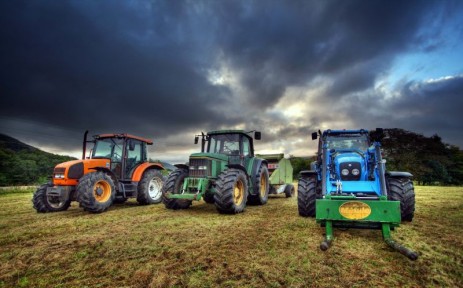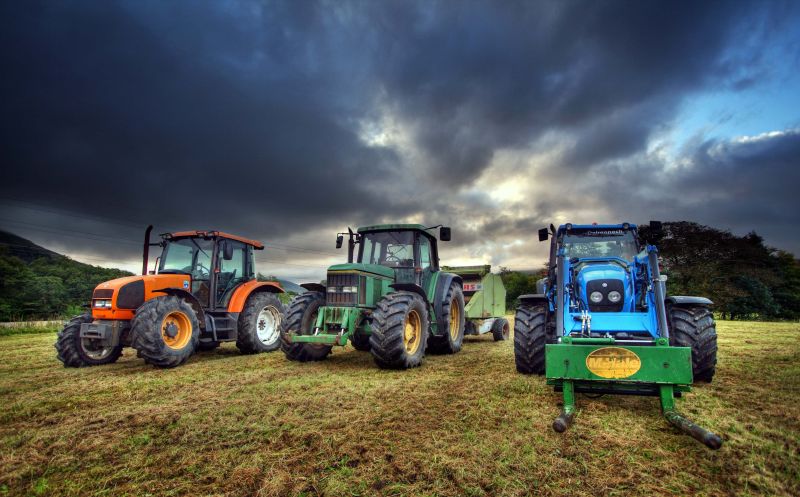 Real climate action–or agribusiness as usual?Photo: mike138After the House narrowly passed the Waxman-Markey climate legislation, there was some talk that the bill might be “strengthened” in the Senate.
Real climate action–or agribusiness as usual?Photo: mike138After the House narrowly passed the Waxman-Markey climate legislation, there was some talk that the bill might be “strengthened” in the Senate.
The bill’s sponsors had faced a serious slog in getting it through the House, and were forced into making large compromises with the energy and agribusiness industries. Perhaps a more effective bill, the thinking went, might emerge from the Senate.
I remember thinking, really? Have these people not heard of the Senate Agriculture Committee?
I watched with deep cynicism the proceedings of last week’s ag committee hearings on climate change (video here). The terms of debate were not encouraging for anyone who takes the threat of climate change seriously.
Essentially, debate broke down into an unedifying dichotomy between those who argued (like USDA chief Tom Vilsack and ag committee chief Tom Harkin [D-Iowa]) that climate legislation can be rigged to benefit Big Ag, and those who argued (like American Farm Bureau kingpin Bob Stallman and Sen. Saxby Chambliss [R-Ga.]) that climate change is a liberal fantasy in search of big taxpayer bucks (unlike, say, the agribiz lobby’s ruthlessly defended ethanol program).
Having watched from afar as House Ag Committee chair Collin Peterson essentially mugged Waxman and forced him to write an agribiz-friendly code into the climate bill, I sense a similar hijacking in the works in the Senate. Indeed, like Peterson, committee chair Harkin has already signaled that he plans to use the legislation to boost corn-ethanol interests: he aims to insert a clause that would raise the maximum ethanol blend to 15 percent from 10 percent, usurping the EPA’s authority to decide on this issue. “It is my feeling that EPA has a strong bias against ethanol,” he complained earlier this month.
Around the time of the the hearings, Vilsack unveiled a USDA study showing that agriculture would benefit from the cap-and-trade legislation that came out of the House. Not long before, the Environmental Working Group released a stinging assessment of the agriculture provisions of the House bill
The agriculture provisions of the bill … open two loopholes that threaten to let coal-fired power plants and other big climate polluters off the hook and slow progress toward reducing greenhouse gas emissions.
EWG’s analysis essentially backs up my own at the time of the House negotiations–that the concessions won by Peterson essentially pay farmers for upholding the (chemical-intensive) status quo.
Indeed, the agribusiness lobby is rather desperate to turn climate legislation into a tool for maintaining the status quo. A cap-and-trade regime that raised the price of synthetic fertilizer and diesel would cut into profits of the agribusiness giants, because it would leave farmers with less cash to spend on pricey inputs like GMO seeds. Farmers might even experiment with different systems! The trick is to rig cap-and-trade to deliver “offset” payments to farmers for essentially doing what they’re already doing.
By rigging up a robust offset market for input-intensive practices, the higher costs imposed by climate legislation can be negated or more than negated, preserving markets for agrichemical giants.
I understand the necessity of getting a climate bill through Congress, and I realize that in our political system any climate legislation will inevitably be deeply compromised by industrial interests. Of course, it will be a bitter irony if our nation’s first comprehensive climate policy ends up bolstering a chemical-intensive, greenhouse-gas-spewing food system.
For another vision for the future of agriculture, check out the National Sustainable Agriculture Coalition’s excellent policy paper [PDF] on the very real climate benefits of doing precisely what climate legislation seems unlikely to do: create incentives for less chemical- and energy-intensive farming systems.



